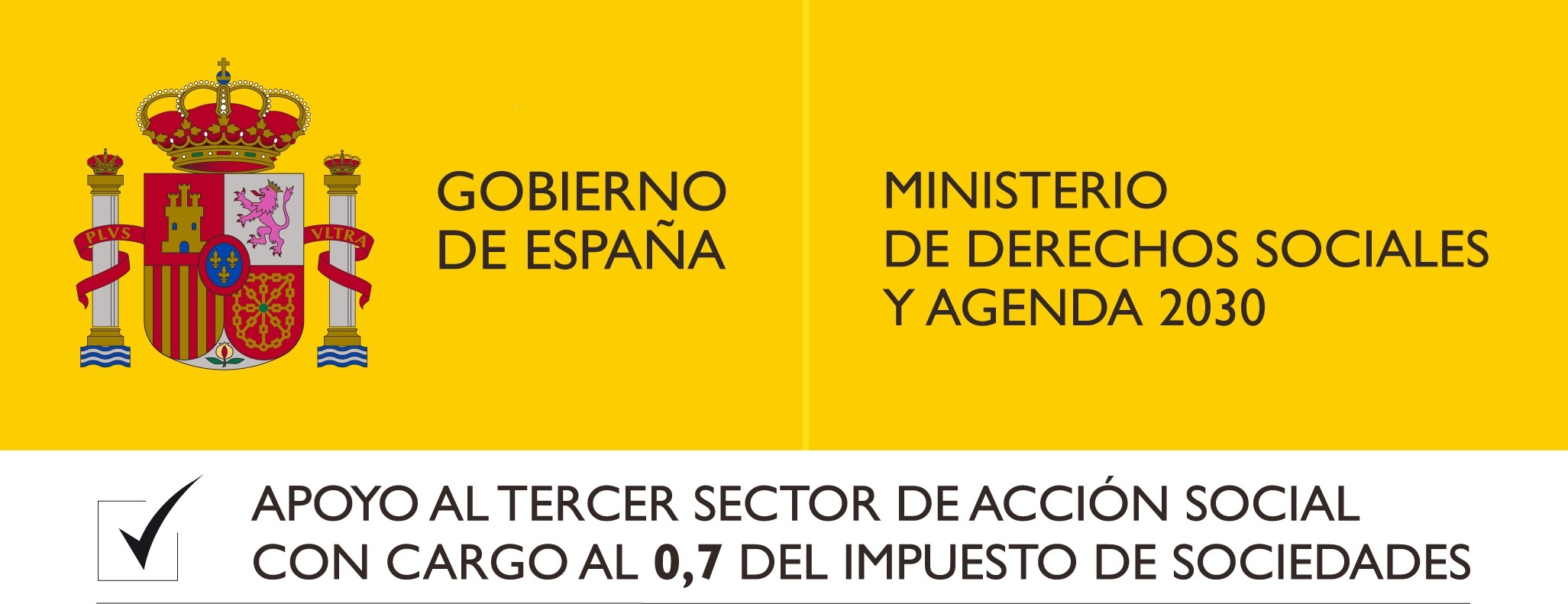Proceso europeo de participación de niños, niñas y adolescentes: Presidencia española de Europa
Do you want to get involved in the child and adolescent participation process of the Spanish Presidency of Europe?

What is it about?
Do you want to have a say on what the European Union does for children? We want to hear from you!
Every six months, one member state of the European Union (EU) takes the role of ‘President’. This means that they will have the responsibility to bring all the different countries in the EU together to discuss the problems they think are important and what they would like to do to solve them.
The next country holding the presidency will be Spain – and they would like to hear from children and young people on what they think those priorities should be. To make this happen, they will:
- organise a consultation with children and young people in Europe to collect their opinions
- organise a meeting, the ‘First European Union Meeting on Child and Adolescent Participation’, in Alcalá de Henares, Spain, from September 29 to October 1, 2023
The Spanish government has sent an official invitation to all EU member states to be part of this process – and now we would like to invite you to be part of it too!
Who is involved?
The event and process is organised by the Spanish Government. They are supported by several organisations in this process:
- Plataforma de Infancia, an alliance of child rights organisations in Spain, who work to promote the rights of all children in Spain. The Plataforma is also a member of Eurochild, a network of child rights organisations in the EU.
- Spanish Committee for UNICEF (UNICEF Spain), a non-profit child rights organisation. UNICEF Spain is part of the 37 National Committees of UNICEF.
- This process is supported by an organization called the Child Friendly Governance Project. It’s a non profit organization that promotes every child’s right to be heard in decisions that impact their lives.
Who can join the Child and Youth Advisory Group?
The Children’s advisory group will include a maximum of 20 members between the ages of 10 and 17. They are selected based on these criteria:
- Availability to meet online at least 2 times during the months of June and/or July.
- English language skills. It is not necessary to be an “expert”, but it is necessary to be able to communicate in English since the sessions and materials will be in English.
- Be part of a child participation structure in your country. This could mean, for example, being a member of a national children’s parliament.
- We will select the participants in the order of registration, but also consider that different countries, genders, and ages are represented.
The deadline for registration is June 12, 2023.
Children and adolescents who participate in this group will not necessarily have to participate in the face-to-face event in September if they don’t want to. The participation criteria for that event will be shared mid-July.
Safeguarding guidelines
All contracted staff and/or volunteers involved in this activity shall comply with the following safeguarding guidelines:
• Take all appropriate measures to safeguard participants and to prevent their staff, including volunteers, who may be involved in the activity from sexually exploiting or sexually abusing any person.
• Ensure compliance with all applicable laws in carrying out their responsibilities including all applicable laws relating to the safeguarding of children under the age of 18, prevention of discrimination and prevention of sexual abuse and exploitation.
• Have a complaints reporting mechanism in place and take appropriate measures to respond promptly to complaints received when minors are not safeguarded or a situation arises that may cause harm (directly or indirectly, physical or psychological) to any participant in the activities carried out under the contract.
• Take appropriate action promptly upon receipt of complaints received when participants of the activity are not safeguarded. For any eventuality, you can write to: dpd@mdsocialesa2030.gob.es
• Situations where staff and/or volunteers may be in contact with a minor or any other compromising situation involving both physical and/or digital contact during or after activities should be avoided.
• No participant shall be treated differently for personal reasons, preferences or prejudices.
• Information about trauma or abuse of participants will not be sought in a premeditated way.
• You will not participate in or contribute to the exploitation/abuse of participants, or any other activity that may cause them harm (directly or indirectly, physical or psychological).
• No sexual activity of any kind (with or without contact) with a minor.
• No behaviour that is unsafe for participants or illegal will be solicited, participated in or condoned.
• No gifts, money or goods will be given to participants and no special treatment will be given to any participant.
• Inappropriate, harassing, abusive, abusive, sexually provocative, humiliating, degrading or culturally insensitive language or behaviour towards participants shall not be used.
• No form of sexual activity, including payment for services or sexual acts, with minors or participants shall be engaged in or facilitated.
• No participant shall be physically punished or intentionally harmed in any way.
• No form of illegal drugs or substances shall be used in the workplace or in any work-related context where participants are present or where they are not supervised by their legal representative or person in charge of them at the time.
• All information to which he/she has access as a result of his/her involvement in the activity related to child protection or sexual abuse cases shall be kept confidential, unless he/she is requested to provide the information by a competent authority or by those responsible for the investigation.
In relation to the use of images, stories and personal data:
• It is expressly forbidden to capture or share images, stories or personal details of participants in the activities developed in compliance with the object of this contract who are in a situation of vulnerability, such as those in conflict with the law, those associated with armed groups or forces, refugee or migrant children, or victims of sexual violence, without the express authorisation of the social entities that are intervening directly with the participants, of the participants themselves and of the coordinating team of this process.
• No photos, videos or stories of participants may be captured or shared that may put them at risk or show them in a vulnerable, humiliating or degrading way.
• Participants will not be asked to tell a story or take part in an action that is not part of their own story or experience.
• No photos, videos, stories or captions will be manipulated.
• Social media will not be used to solicit or befriend a participant and their images will not be disseminated on personal social media sites (or corporate social media sites) unless informed consent and validation is obtained from the social entities and The Child Governance Project coordinating team.
• If a participant initiates contact or seeks to have an interaction with labour and/or volunteer staff of the successful bidder beyond matters related to this contract, the communication will be immediately diverted to their legal representatives or the person responsible for their participation.
Registration form
Suscríbete a nuestro boletín

UNICEF España
Secretaría de la iniciativa Ciudades Amigas de la Infancia
C/ Mauricio Legendre, 36 28046 – Madrid
Tel. +34 91 378 85 95
Fax: +34 91 3147475
ciudadesamigas@unicef.es









